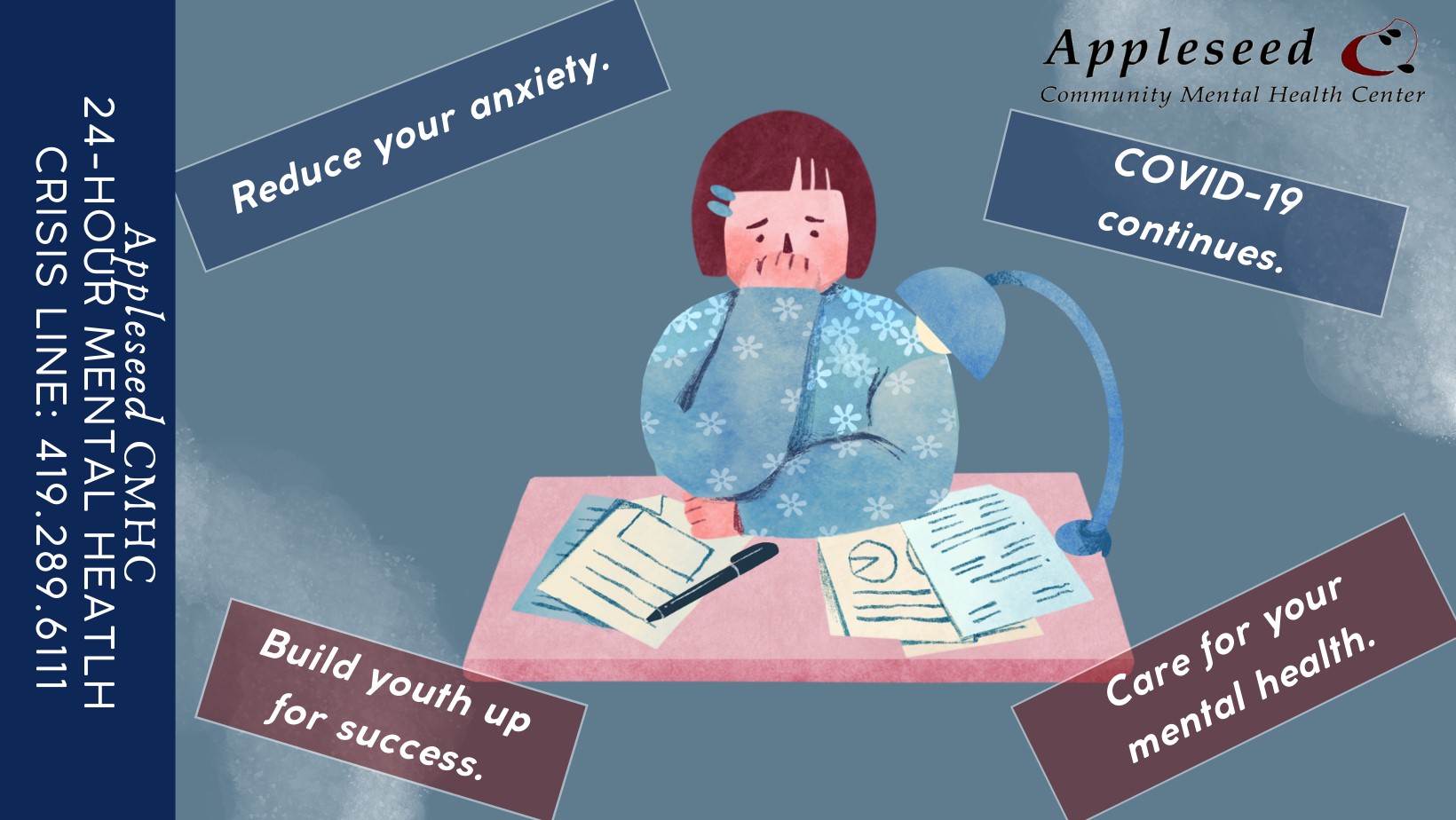Because COVID 19 is still impacting our lives and filling our day-to-day news stories, we have to be vigilant about our mental health care.
And yes, this definitely includes our children and teens.
When youth experience mental and emotional stress, we need to remember that they haven’t had as much opportunity as adults to learn from mistakes or develop problem-solving and emotional-management skills.
It is important for parents or caregivers to engage with their children and adolescents over their stress and anxiety in a healthy way. Promote healthy coping skills that will allow youth to manage their emotions and manage the parts of their lives they have control over.
These skills will become vital as children grow and develop more complex and potentially distressing emotions. One of the most important things you will do is to teach your child to handle disappointment and frustration. Instead of automatically jumping in to fix it for them, encourage them to learn and grow through it. Saying something like, "I'm sorry this is so hard, but you will get through it stronger on the other side,” or "This isn't how you hoped it would turn out but let's learn something from it," will benefit them more than being their “fixer.”
It's okay for children to get frustrated and disappointed. Allow them to feel that way and feel through their emotions.
Once they're done grieving, they'll be ready to try again the next day, especially when you express your confidence in them. That's how children develop resilience.
We as parents and grandparents can help our children build confidence by teaching, encouraging, and allowing them to tackle manageable challenges without taking over. Researchers call this parenting approach "scaffolding." You tell, or better yet, show your children how to do something and then watch and encourage them as they do it rather than doing it for them.
This helps them learn the problem-solving-process and find success through their own effort. Even small successes help give your child or teen the confidence to try new things themselves.
We can also instill strength and resilience by teaching youth to self-encourage. Begin to think of ways you can use this technique with your children. Encouraging your child gives them an inner voice that will help them to encourage themselves for the rest of their lives. Research shows that kids who talk themselves through difficult situations find it easier to master difficult tasks. Give your child phrases to repeat such as, "Practice makes progress," or "I can learn this if I keep at it." Help your child develop that automatic internal comforting voice to inspire and motivate them.
This positive self-talk puts your child a step above their stress, but we still need to be ready and aware of times when stress management is too overwhelming.
Adolescents experience stress in ways that are both similar and different from adults. Adolescents may experience:
- significant changes in sleep patterns (more, less, frequent waking, trouble falling asleep)
- self-isolation
- frequent irritability or frustration
- withdrawal from usual activities
- more frequent engagement with technology
Adolescents are already coping with life’s mental and physical transition from youth to adulthood, and aren’t always equipped to express or understand the complexities of their feelings–now topped off with the on-going stress and isolation caused by COVID-19.
Likewise, people in general haven’t always been provided with the opportunities or skills to cope with change or high stress.
It is important for us not to judge others' reactions to the fear and stress they experience. Everyone is living the ongoing pandemic differently and everyone has different levels of coping. Strive to be more forgiving and open to the differences and needs of others. Together we can move through the difficulties, fears, and anxieties we are experiencing, and with each other's help, we can find hope and healing from this international ongoing pandemic.
Resources:
-Jerry Strausbaugh, EdD, LPCCS, Executive Director







